15 tips for more sustainable travel
How to travel more sustainably
Almost all of us like to travel, however, in doing so, depending on what our actions are, this can leave quite a large carbon footprint. Nowadays, we will find a new trend that we should all practice, sustainable travel. This implies being aware of the need to reduce the impact on the environment while traveling, in order to take care of our planet.
Are you one of those people who care about the environment and like to travel around the world? Then, you should know what sustainable travel is and put it into practice.
Here are 15 tips that will allow you to travel in a more sustainable way and help you to take care of the environment. Let’s get started!
1. Visit unpopular destinations or travel during low season.
There are a lot of places that are not usually well known by tourists, which will fascinate you, not only for their landscapes but also for the tranquility that you will feel being one of the few people visiting them. Therefore, the first tip for sustainable travel is to choose a destination that is not very crowded. In this way, you will help to reduce the negative effect that masses of people have on the environment, while you will be able to enjoy the destination with peace of mind.
On the other hand, if you are looking to visit some of the most popular and crowded places, the best option is to plan your trip during low season.
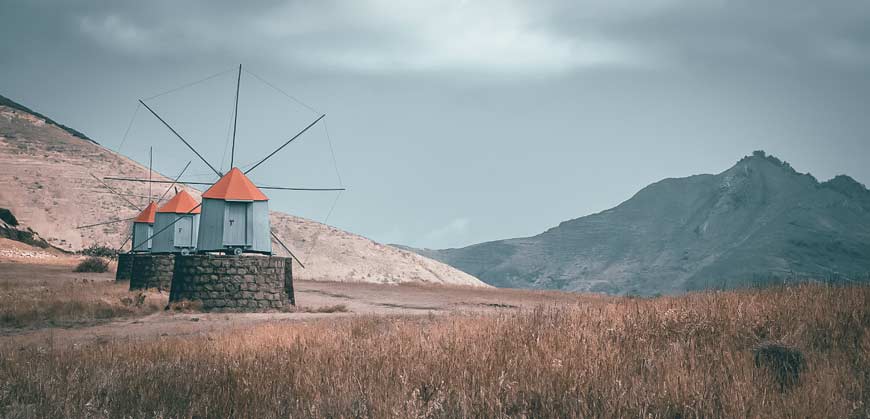
2. Take the train instead of the plane
The airplane is an excellent way of transportation and helps you get from one place to another in a very short time. However, airplanes have higher CO2 emissions, which makes them an environmentally unfriendly means of transportation.
If the destination you are traveling to can be reached by train, this is the best option you have to travel in a sustainable way. This is because trains emit less CO2 and also have a higher capacity to transport people.
However, we know that it is not possible to reach all parts of the world by train, especially on intercontinental trips. But if in some of your trips you manage to avoid the plane, it is already a contribution to the care of the environment. Every grain of sand helps to achieve the goal.
Unfortunately, air travel is far from sustainable. What we can recommend is that you inform yourself about the different airlines as some of them allocate part of their funds to support other environmental and ecological projects to offset their CO2 emissions. This has its flaws and obviously does not solve the problem but right now it is the best option to help if you choose to travel by air.

3. Use means of transportation with lower CO2 emissions.
When you are at your destination, one of the things you should take into account is how you are going to move around the place. Ideally, you should use means of transportation with low or zero C02 emissions.
Depending on where you plan to visit, one of the main things you can do is to go sightseeing on foot if it is nearby or use a bike.
If it is not possible to travel by other means, you can opt for electric cars or use public transportation, such as buses or the subway, which are means of mass transportation that have less impact than using traditional cars.
4. Apply the “slow travel” method
This movement, which promotes a different way of traveling, has gained momentum with the pandemic and has become a fundamental pillar of sustainable tourism. The slow travel method challenges mass tourism by defending the idea that traveling and getting to know a country means sharing more with local people, calmly getting to know their regions and culture, understanding their way of life, traditions, gastronomy and consuming their local products.
Instead of rushing around the country, spend a longer period of time soaking up the place you are in, its people and its stories. Try to travel slowly, enjoying the moment and without rushing. Spending more time in each destination is not only the best way to travel sustainably but also to turn your trip into a unique, new and unexpected experience.
5. Put the 3 R’s into practice
When you go on a trip, it is important that you put into practice the 3 R’s: Recycle, Reuse and Reduce. This philosophy will enable you to significantly reduce your footprint on the environment.
Reduce the amount of waste you generate as much as possible by buying only what you need and choosing products or packaging that you can reuse.
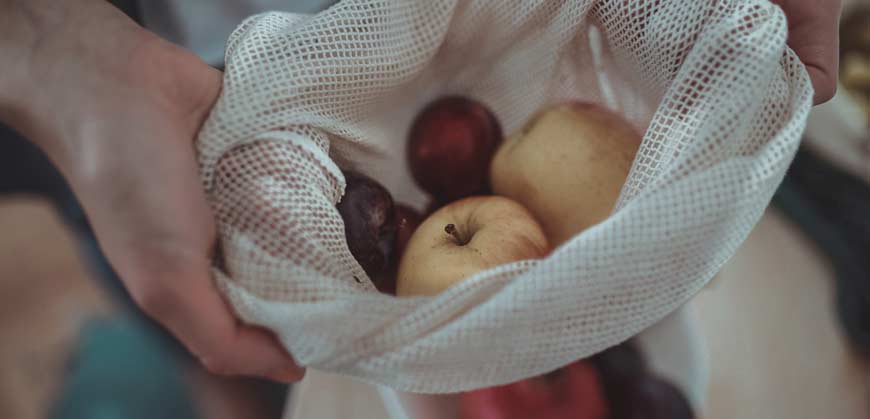
6. Travel light
One of the things that people tend to do when traveling, and that has happened to all of us at some point, is to carry a lot of extra items and clothes that most likely will not end up being used. This makes you travel heavier and the more weight you carry, the higher the emission on the means of transport.
Ideally, you should only travel with what is really necessary and not carry things “just in case”. Because, in the end, you will most likely never get to use that extra stuff.
7. Stay in places that are eco-friendly
Another thing to consider when traveling is accommodation. Don’t just pick any hotel chain, as many don’t make any effort to be more sustainable and have a very large CO2 footprint.
If you want to take care of the planet, the best thing to do is to choose an accommodation that respects and does not harm the environment, or at least, that tries to do so. Many sites claim to be eco-friendly, but few actually perform actions that truly help the environment.
So before making your reservation, take some time to research the accommodation’s sustainability initiatives. This could be any action or effort to be more sustainable such as using solar energy, not using plastics, saving water by not washing sheets and towels every day, saving energy and using only local products in their kitchens.
You won’t find it very difficult to identify environmentally friendly accommodations in most countries and they are not necessarily more expensive either. If we all support these environmentally responsible accommodations, little by little we will get more traditional hotels to realize the importance and join these sustainable initiatives.
8. Support local business
We know how easy and convenient it can be to shop at large supermarket chains. Finding everything you need in one place is convenient, however, in the vast majority, you will find many imported and processed products that in their processes are not at all environmentally friendly.
In addition, local products are an important pillar for the functioning of the city’s economy. By supporting local business people, you positively impact the development of the community.
That’s why the recommendation is to shop at local establishments such as farmers‘ markets, traditional restaurants, artisan stores, etc. In case you want a package tour, hire responsible local companies and not large international companies.
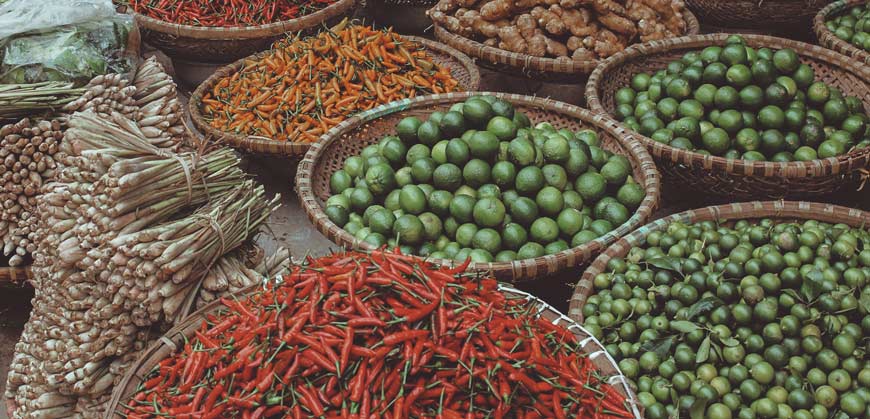
9. Stay away from places where animal abuse is encouraged.
In tourism, it is quite common to come across a large number of animals that, for one reason or another, have been mistreated and are used as a tourist attraction. It is very important that you do not support these practices.
We know that it can be entertaining and fun for some people to take an elephant or dromedary ride. See whales and other fish enclosed in a fish tank, monkeys performing juggling or similar.
These animals have been subjected to abuse by their owners to be turned into a tourist attraction. That is why it is very important that you do not participate in or support these activities to prevent more animals from being abused.
It is also very important that you do not buy products made from animals. In some countries they sell all kinds of souvenirs made with animal parts such as stars and seahorses, turtle shells, corals, skins, etc. This should be prohibited. By buying these products you are contributing to the extinction of these species and illegal poaching.
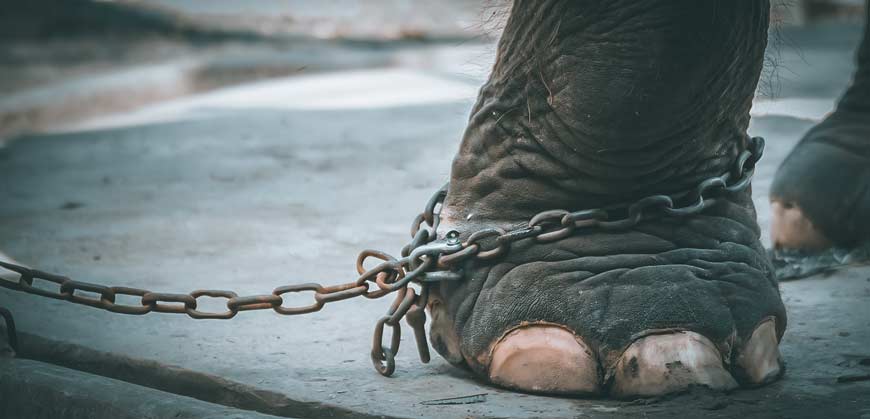
10. Do not leave trash or waste
Remember, when traveling and going on a picnic, a trip to the beach or hiking, it is very important not to leave anything behind. This does a lot of damage to the environment and contributes to more waste in natural areas.
Much of this waste tends to be plastic bags, bottles and other plastic products. These materials do not biodegrade properly and end up polluting for years. This is a great harm to the environment, so always remember to leave no trace of your passage.
By doing so, you help prevent animals and marine life from ingesting plastic toxins or suffering harm from becoming entrapped in our waste. Remember that plastic can take up to 1000 years to decompose.
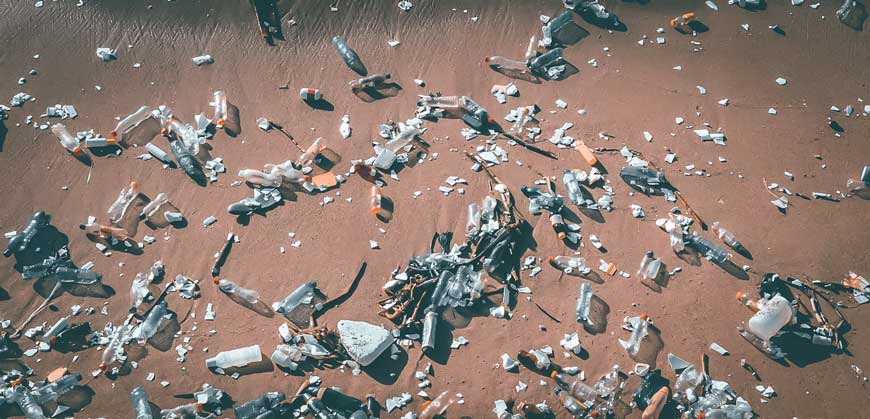
11. Do not buy plastics
Plastic waste is saturating the planet, especially our oceans. As mentioned in the previous point, one of the materials that contributes most to environmental damage is plastic. Most liquids are contained in plastic containers that are not biodegradable. The same applies to the different bags you find in the supermarket, so you should avoid buying this type of product.
Nowadays, we see how biodegradable plastic packaging and bags are available. These are much safer and have less impact on the environment. So go for them or your own reusable containers and bags during your trip.
Most importantly, what we should avoid at all costs is buying single-use plastics. Such as bottles, straws, plates, cups, fruits and vegetables packaged in plastic, etc. All this waste can be avoided.
The most practical way to avoid these types of products during our travels is to look for reusable options such as carrying a reusable water bottlea cloth bag for shopping, your own cutlery reusable if you plan to buy take-out and the food is hygiene products as a shampoo best in solid form or in your own refillable bottles.
Here are some easy-to-implement changes you can start making in your travels that have a big positive impact.

12. Be conscious with the use of water and electric energy.
This is a fairly obvious step, to make your trip more sustainable, you should not give yourself the luxury of wasting water or electricity. Make sure to keep all the faucets in the room turned off and use only the water that is really necessary. Also, when you leave the hotel or Airbnb, remember to turn off all lights, air conditioning and do not leave anything plugged into the power outlet.
13. Plan your trip from the very beginning to make it sustainable.
The first step before traveling is to plan it, which is why, if you are thinking of traveling in a sustainable way, it is necessary to take this into consideration from the planning stage. This will allow you to choose the best means of transportation, a more sustainable destination, the way you will move and the routes to follow.
This will allow you to control and reduce your carbon footprint. So whenever you are planning a trip, think sustainably.
14. Respect the environment and nature
Even if you think that the impact of your actions is small, the sum of the actions of many travelers can have negative consequences for the locations you visit.
Over time, many natural sites are suffering the consequences of mass tourism. By respecting the environment we ensure the future of sustainable travel. For example, in your travels:
–Avoid touching ancient monuments and temples. Respect the signs of the place and the culture.
– If you go snorkeling or scuba diving, do not touch the corals and pay attention if you wear fins. Corals are not plants but very delicate invertebrate animals, any contact or shock can kill them. In a matter of seconds we can destroy something that has taken years to form so be careful not to touch them.
– Do not take the starfish out of the water for even a few seconds as they may die. Because many people pick them up to take pictures with them, their population has been reduced in many places.
– When swimming in the sea, use sunscreen that is safe for coral reefs. You may be unaware that many sunscreens contain ingredients that are harmful to marine life, leading to coral bleaching, among other dangers.

15. Reduce your meat intake
It has been proven that industrial livestock farming is one of the main causes of climate change. The massive farming of pigs, cows and other animals leads to the production of more greenhouse gases than the entire transportation industry. That is why, among many other reasons, the decrease in meat consumption creates a great positive change for the planet.
It is true that a global shift towards a more sustainable diet and a commitment to more environmentally responsible alternatives is not easy, but everyone can do their bit by eliminating or reducing their meat consumption.
And last but not least, don’t forget to share your knowledge and experiences with other travelers. Remember that the more people we choose to travel sustainably, the greater the positive impact we have on the planet.
Lost Coconuts

Hi! We are María & Toni, digital nomads and creators of Lost Coconuts.
On our blog we share travel guides, tips for digital nomads and free tutorials with everything we’ve learned so that you too can start your own digital projects. About us
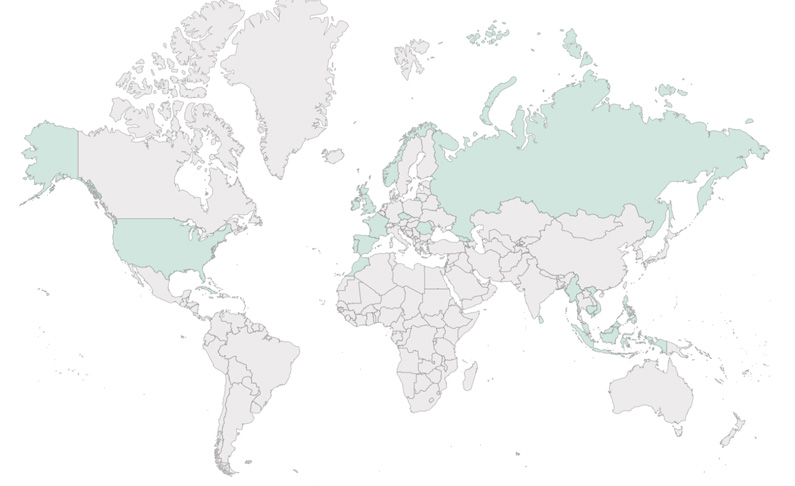
Now in: Georgia 🇬🇪
Related Posts
13 common travel mistakes and the best ways to avoid them
13 common travel mistakes and the best ways to avoid themHere’s everything you’re doing wrong when travelingFor many of us, traveling is a way of life. It's something that we've been doing full-time for the past few years, and as you can imagine,for us, avoiding...
AI Travel Apps: How AI will change the way you travel
AI Travel Apps: How AI will change the way you travel9 AI travel apps that you can use instead of a travel agentTravel planning isn’t the same anymore. There’s no need to visit a travel agent or get yourself through complex procedures. Now, you can plan everything on...
The 14 must-have travel apps for your phone
THE 14 BEST TRAVEL APPS THAT YOU CAN'T LEAVE WITHOUTThe best apps for travellersNo matter how well you plan your trip, something unexpected will always come up. How to get somewhere, where to eat, communicate in a language you don't know, connect to the nearest wifi....




0 Comments